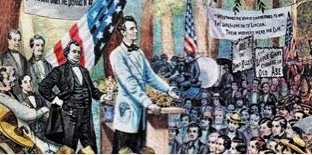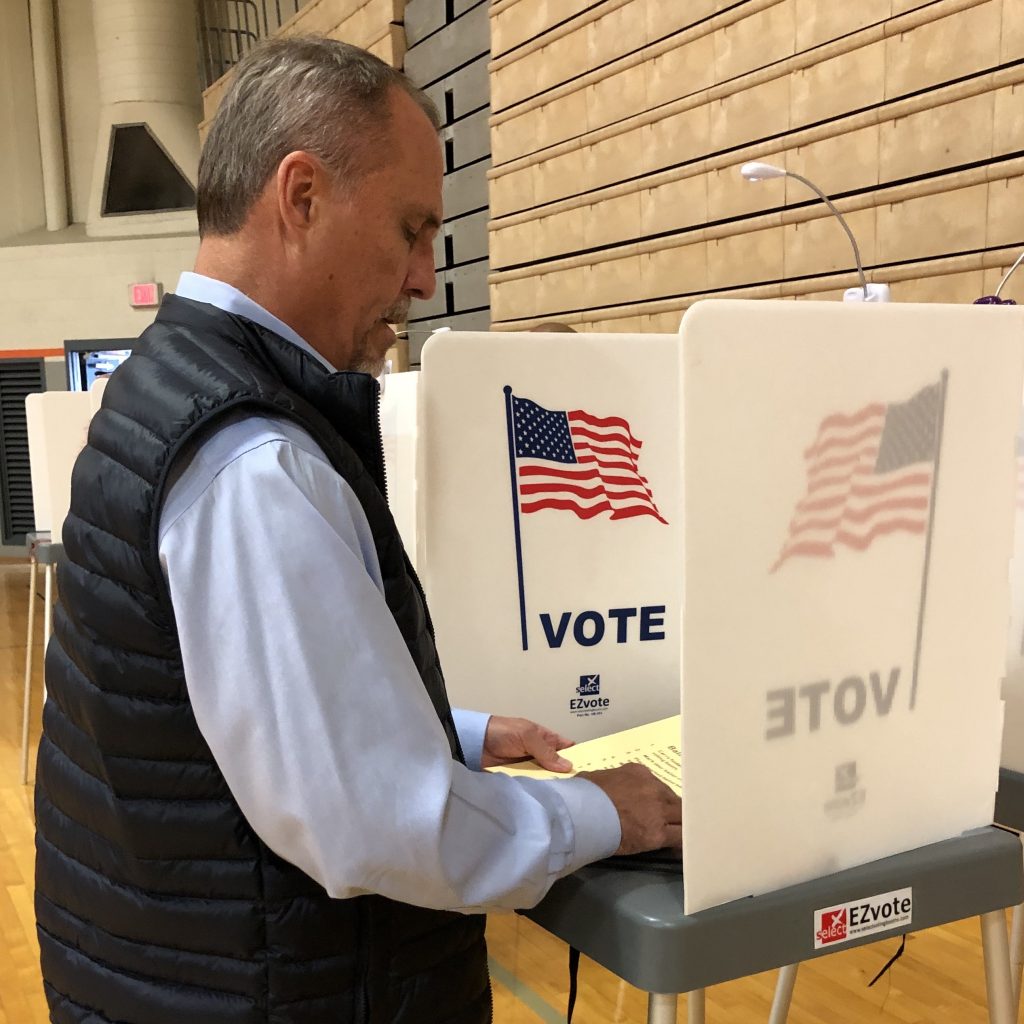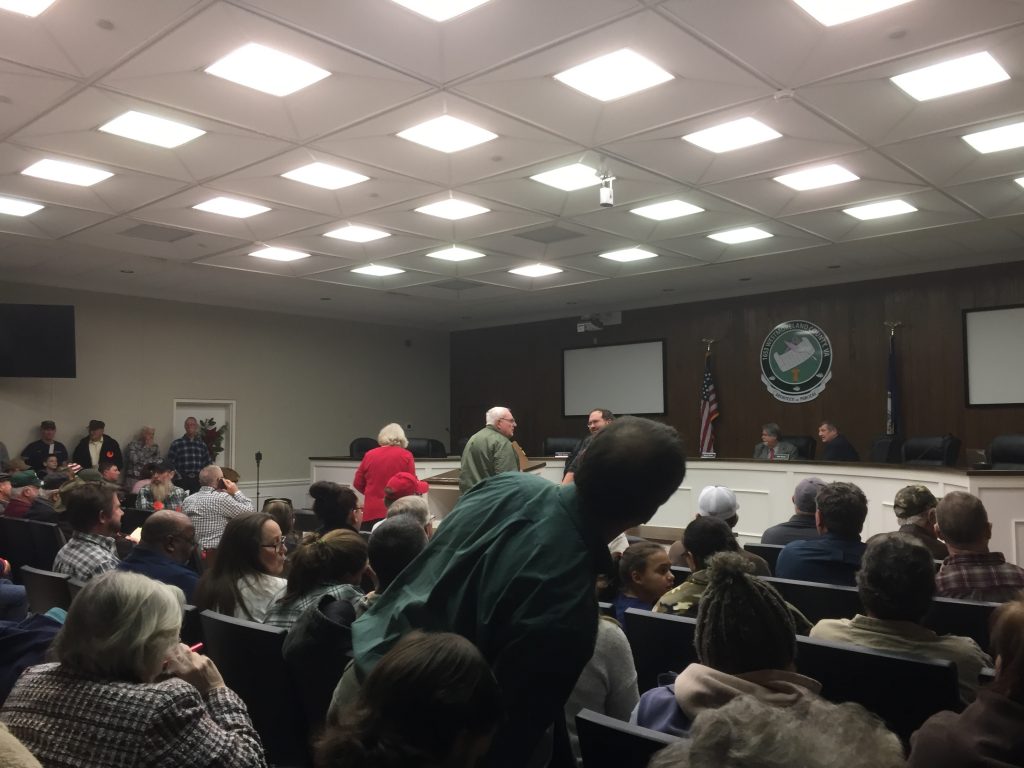This is a guest post from my good friend Elwood “Sandy” Sanders, who blogs at Virginia Right. and his first entry in our new “Lincoln-Douglas II: The Sanders-Scott Debates.” This essay will be cross-posted at Sandy’s site. You can read my initial entry in the series here.
Let’s Start With What It Is: Willful Taking of a Human Life
I found out in my research that there is some dissent or at least some questioning the idea that science says life begins a conception. From WIRED:
Inside the body, fertilization can happen hours or even days after insemination, as the sperm travels up the fallopian tube. This journey also induces changes in the membrane of the sperm, called capacitation, that ready it to fertilize eggs. (The discovery of artificial capacitation was key to making in vitro fertilization possible.) As the fertilization researcher Harvey Florman has said, “Fertilization doesn’t take place in a moment of passion. It takes place the next day in the laundromat or the library.”
But even fertilization isn’t a clean indicator of anything. The next step is implantation, when the fertilized egg travels down the fallopian tube and attaches to the mother’s uterus. “There’s an incredibly high rate of fertilized eggs that don’t implant,” says Diane Horvath-Cosper, an OB-GYN in Washington, DC. Estimates run from 50 to 80 percent, and even some implanted embryos spontaneously abort. The woman might never know she was pregnant.
Assuming that fertilization and implantation all go perfectly, scientists can reasonably disagree about when personhood begins, says Gilbert. An embryologist might say gastrulation, which is when an embryo can no longer divide to form identical twins. A neuroscientist might say when one can measure brainwaves. As a doctor, Horvath-Cosper says, “I have come to the conclusion that the pregnant woman gets to decide when it’s a person.”
Lest you think I’ve gone liberal on my readers, I think that whether human life begins at conception (fertilization) or implantation or gastrulation. I think it is clear that there is an awesome event going on here in the womb. It reminds me of my seventh grade biology teacher when speaking on the question of the reproduction of plants, said that how some things happen can only be answered by faith in God. Abortion almost always occurs after a embryo has attached to the womb. It is a willful taking of human life.
And good people can disagree about both the rightness or legality of abortion. But since it’s a willful taking of human life, it ought only to be allowed in rare circumstances.
Let me cite Secretary Clinton, yes Hillary Clinton, who said abortion should be “safe, legal and rare.” But not in the way she means.
I mean that abortion should be safe and legal in rare situations and here is my proposal:
Abortion should be legal only in three situations:
Life of the mother is in danger (or a serious physical threat to her life)
Rape or incest promptly reported to the authorities
A child is likely to be born with a serious deformity that will affect his or her quality of life in a substantial way.
Now, I do not say abortion is RIGHT (not sin) in some – even most of those situations. I would probably say abortion IS sinful in situations two and three described above. And after say 20 weeks, I’d drop situations two and three.
Now, we turn to the law. Roe v. Wade was a Supreme Court case decided in 1973 (January 22 – that is why the March for Life occurs about that time) which found that the Substantive Due Process clause of the US Constitution stated that in the early stages of pregnancy the abortion decision was up to the mother, her doctor and/or her pastor. But after viability, there was a different rule and then the state could protect life.
Substantive Due Process is a judge-made interpretation of the due process clause to invalidate laws the courts did not like. It depends on who’s ox is being gored as to do you like substantive due process. It protects abortion and contraception but also private schools, parental rights and by extension homeschooling. Substantive due process is problematic is that it is difficult to establish what are the parameters and limits of the doctrine to prevent judges from having the last word on laws in a democratic republic.
I think the solons in Washington thought they had decided the matter for good and only some extremists on both sides (Roe did NOT hold that a woman had an absolute right to an abortion) would fuss about legal abortion but the opposite occurred.
It must be respected the pro-life position; they believe they are saving babies or future babies from certain death. Now almost every politician in the state legislatures (and most in Congress as well) were male. It might have been better if those male legislators had been more discreet and sensitive in their language/discussion of intimate decisions of women.
A future Supreme Court Justice (and future cultural icon) Ruth Bader Ginsburg suggested – when she was nominated for the Supreme Court – maybe the SCOTUS went too far in Roe:
The seven to two judgment in Roe v. Wade declared “violative of the Due Process Clause of the Fourteenth Amendment” a Texas criminal abortion statute that intolerably shackled a woman’s autonomy; the Texas law “except[ed] from criminality only a life-saving procedure on behalf of the [pregnant woman].” Suppose the Court had stopped there, rightly declaring unconstitutional the most extreme brand of law in the nation, and had not gone on, as the Court did in Roe, to fashion a regime blanketing the subject, a set of rules that displaced virtually every state law then in force. Would there have been the twenty-year controversy we have witnessed, reflected most recently in the Supreme Court’s splintered decision in Planned Parenthood v. Casey? A less encompassing Roe, one that merely struck down the extreme Texas law and went no further on that day, I believe and will summarize why, might have served to reduce rather than to fuel controversy.
But Justice Blackmun tried to, in Roe, write a comprehensive decision that answered every conceivable future question. Roe was described by Professor John Hart Ely in the Yale Law Journal as legislation and a decision that does not “pretend to be” constitutional analysis.
“[The abortion decision] is not constitutional law and gives almost no sense of an obligation to try to be….What is frightening about Roe is that this superprotected right is not inferable from the language of the Constitution, the framers’ thinking respecting the specific problem in issue, any general value derivable from the provisions they included, or the nation’s governmental structure.”
I would rather have no legal abortions at all than unfettered judicial law-making. And I prefer not to have either one.
By the way, if you want to see how extreme the pro-abortion forces are, consider this paragraph from the Time article cited above on Ginsburg:
Kate Michelman, then president of the National Abortion Rights Action League, called on the Senators to determine “whether Judge Ginsburg will protect a woman’s fundamental right to privacy, including the right to choose, under a strict scrutiny standard.” The questioning was strong enough that Ginsburg’s husband Marty Ginsburg, one of the fiercest advocates for her judicial career, got academics to call the White House and clarify that she was talking about the Court’s thinking in 1973, not the ultimate decision.
I still think abortion ought not to have become a federal question. I believe the Sanders objections could be enshrined in law beyond state objection through the establishment of legal defenses required by the PROCEDURAL Due Process clause. In fact, Roe v. Wade could be upheld in such a way as to gut most “choices”. Overruling the case is not necessary.
But before we overthrow Roe, let’s consider the other side of the issue: If abortion is a willful taking of human life, than technically the government could assert jurisdiction over all women of child-bearing age similar to Ceausescu’s Romania where there were inspections of pregnant women. I would suspect few pro-lifers would agree with that kind of of regime and I certainly do not.
So where do we go from here? There’s always the curse of getting what you want. (One reason why Jesus does not answer every prayer with yes.) If Roe is overruled or severely limited, the GOP and pro-life Dems and Libertarians better have some reasonable solutions to this issue. The result of getting this issue wrong is to ensure most women vote a straight liberal Democrat ticket in most of the states and the Federal government for a generation, maybe two. I recommend pro-life lawmakers adopt something like the Sanders position with some serious but science/evidence based regulations of abortion based on abortion being a willful taking of human life.





